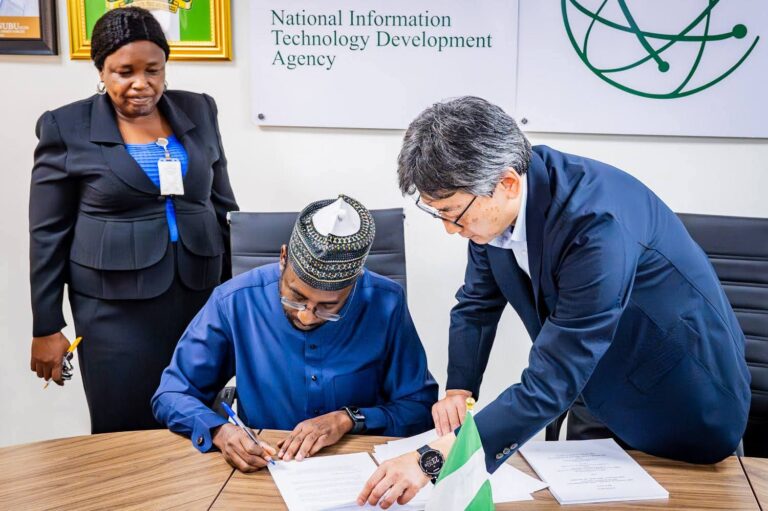In a significant stride towards bolstering Nigeria’s innovation and technology ecosystem, the National Information Technology Development Agency (NITDA) has officially commenced the establishment of an $11.2 million innovation hub in Abuja.
This transformative initiative is a result of a strategic partnership with the Japan International Cooperation Agency (JICA), aiming to accelerate Nigeria’s economic diversification through industrialization and digitization.
The formalization of this collaboration saw the signing of an agreement for the implementation of the Startup Hub Project between NITDA, represented by its Director General, Kashifu Inuwa, and a consortium of Japanese consultants, including Oriental Consultants Global Co. Ltd., Intem Consulting Inc., and Yachiyo Engineering Co. Ltd.
This $11.2 million grant from JICA is earmarked to provide crucial infrastructure and support for startups, establishing the hub as a vibrant center for creativity, research, and technological development.
This project is a key component of a larger $30 million grant agreement signed earlier this year between the Federal Government of Nigeria and JICA for the development of Startup Hubs across the nation. Of this larger sum, $9.9 million is dedicated to the NITDA-led innovation hub, while an additional $21 million, to be executed by the Nigeria Sovereign Investment Authority (NSIA), will foster a supportive environment for social startups nationwide.
Director General Inuwa revealed that the project’s genesis lies in the successful “iHatch” initiative, which has already been co-training and incubating startups with seed funding from JICA. “To strengthen this relationship, JICA decided to give us a grant to build an innovation hub, so that after training the startups, they can have access to a makerspace where they can turn their ideas into products and services,” Inuwa stated, highlighting the direct link between the training programs and the new infrastructural development.
Inuwa further lauded the collaborative spirit aimed at deepening the ties between the Nigerian and Japanese technology ecosystems. He emphasized the importance of ongoing exchange programs, which facilitate not only knowledge and skills transfer but also open new avenues for collaboration between innovators from both countries.
These initiatives are deemed instrumental in cultivating an environment where Nigerian startups can evolve into sustainable, innovation-driven enterprises capable of competing on a global scale. “It’s about building the entire ecosystem; we are not just training startups, we are also giving them the tools, the environment, and the financing they need to thrive,” he affirmed.
With the arrival of the consultants, preliminary design work is now underway, marking the official commencement of the project’s implementation phase. Beyond its physical infrastructure, the innovation hub is envisioned as a powerful catalyst for economic growth, nurturing homegrown talent and promoting entrepreneurship. It will serve as a vital bridge between theoretical training and commercialization, offering a conducive environment for startups to ideate, experiment, and ultimately scale their businesses. By providing innovators with essential resources such as mentorship, incubation support, and access to seed funding, the project aims to solidify Nigeria’s position as a leading technology and innovation hub in Africa.



